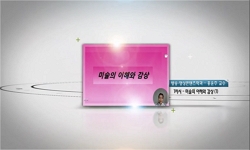This article follows the attitudes and positions taken by Chinese educators of the early 1930s in response to the ‘Sinicization of education’ agenda as proposed by the Study Mission for Education in China (‘Study Mission’ henceforth) sent by t...
http://chineseinput.net/에서 pinyin(병음)방식으로 중국어를 변환할 수 있습니다.
변환된 중국어를 복사하여 사용하시면 됩니다.
- 中文 을 입력하시려면 zhongwen을 입력하시고 space를누르시면됩니다.
- 北京 을 입력하시려면 beijing을 입력하시고 space를 누르시면 됩니다.

1930년대초(年代初) 중국교육계(中國敎育界)의 ‘교육(敎育)의 중국화(中國化)’ 논쟁(論爭)-『중국교육지개진(中國敎育之改進)』에 대한 교육계(敎育界)의 반응(反應)을 중심(中心)으로 = The ‘Sinicization of Education’ Debate among Chinese Educators in the Early 1930s
한글로보기https://www.riss.kr/link?id=A106089068
- 저자
- 발행기관
- 학술지명
- 권호사항
-
발행연도
2019
-
작성언어
-
-
주제어
국제연맹 ; 중국교육고찰단 ; 『中國敎育之改進』 ; 남경국민정부 ; 교육의 중국화 ; 서양화 ; 유럽화 ; 미국화 ; 國際聯盟 ; 中國敎育考察團 ; 南京國民政府 ; 敎育之中國化 ; 西洋化 ; 歐洲化 ; 美國化 ; League of Nations ; Study Mission for Education in China ; The Reorganization of Education in China ; Nanjing National Government ; Sinicization of Education ; Westernization ; Europeanization ; Americanization
-
등재정보
KCI등재
-
자료형태
학술저널
- 발행기관 URL
-
수록면
83-110(28쪽)
- DOI식별코드
- 제공처
- 소장기관
-
0
상세조회 -
0
다운로드
부가정보
다국어 초록 (Multilingual Abstract)
This article follows the attitudes and positions taken by Chinese educators of the early 1930s in response to the ‘Sinicization of education’ agenda as proposed by the Study Mission for Education in China (‘Study Mission’ henceforth) sent by the League of Nations. While the immediate aim for doing so is to attempt a multi-layered restructuring of the discourse among Chinese educators regarding the Sinicization of education, which had emerged as a hot issue during the early 1930s, the ultimate purpose is to reveal the ideological landscape among educators in the 1930s.
Pointing out that education in China was excessively foreignized, the Study Mission recommended that China should establish an independent and autonomous education system, and that this would require authorities to focus on traditional Chinese culture while also referring to the European experience. Contrary to the findings of previous studies, the responses among Chinese educators regarding the ‘Sinicization of education’ proposed by the Study Mission were not simply delineated into arguments for and against. At least three positions were found to have been taken. First, some enthusiastically agreed with the Sinicization agenda of the Study Mission. The second position, from an anti-traditionalist perspective, was critical of Sinicization. The third position, from the perspective of Chinese society, was critically supportive of Sinicization. Such diverse reactions reflected the disparity in the attitudes and positions among intellectuals regarding the nature of the crisis in Chinese education, as well as those regarding traditional culture, educational models, and Chinese society. These responses also represented the views regarding Sinicization held by intellectuals with culturally conservative, liberal, and socialist tendencies.
동일학술지(권/호) 다른 논문
-
황제에게 어울리는 이상적인 배우자-양당서(兩唐書) 「후비전(后妃傳)」을 통해 본 당대(唐代) 후비상(后妃像)-
- 중국사학회
- 金澔 ( Kim Ho )
- 2019
- KCI등재
-
원우당적비(元祐黨籍碑)와 경원당적비(慶元黨籍碑)의 비교 분석-남송대 공론(公論)의 확산과 독서인의 정치참여를 중심으로-
- 중국사학회
- 金榮濟 ( Kim Young Jae )
- 2019
- KCI등재
-
12세기(世紀) 남중국(南中國) 독서인(讀書人)의 오락과 유흥
- 중국사학회
- 鄭壹敎 ( Jeong Il Gyo )
- 2019
- KCI등재
-
양명학(陽明學)과 기타 학설 간의 경쟁-명사 당순지의 양명학 수용을 사례로-
- 중국사학회
- 홍꿔치앙
- 2019
- KCI등재





 KCI
KCI KISS
KISS



